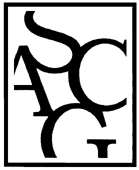Joint industry statement DSA
Joint statement by business, consumer and civil society organisations:
In their current shape, some compromises on the Digital Services Act (DSA) would risk harming consumers and businesses, particularly offline SMEs
We, the undersigned organisations representing businesses and consumer and civil society groups, are deeply concerned by the current direction of the European Parliament’s negotiations on the Digital Services Act (DSA) and by the content of certain draft compromise amendments that exclude key platform services. We urge policymakers to avoid adopting a framework that presents significant risks for both consumer protection and businesses’ viability and reputation, especially for offline small and medium enterprises.
As they currently stand, the limited scope and content of several obligations would not sufficiently prevent illegal goods or services, such as counterfeit or unsafe goods, or illegal ticket resales, from reaching consumers, both misleading them and posing risks to their health and safety, and harming legitimate businesses who face unfair competition from rogue traders. The current draft compromises fail to take into account the reality of e-commerce today and are sometimes based on misconceptions or limited evidence.
More particularly, we strongly advocate against an exemption for small platforms as well as the introduction of a so-called “waiver” for medium platforms, from certain due diligence obligations. Not only is this provision based on the false assumption that they would not have the means to implement those measures, but we believe it is also unfair and unjustified to protect small and medium platforms, when the majority of EU SMEs are in fact brick-and-mortar shops, manufacturers or other offline businesses, who particularly suffer from significant revenue losses due to the increasing number of illegal products being sold online. According to the Commission, only around 10,000[1] of the EU’s 25 million SMEs[2] are online platforms. SMEs are the backbone of the European economy and those who are operating in the offline world already play by a set of strict requirements to ensure consumers are safe and healthy. We do not see why online SMEs would not be required to follow similar rules. In addition, consumers are just as exposed when shopping on small platforms as when shopping on larger ones. Should SME platforms be excluded, rogue traders will simply move from larger to smaller ones.
In addition, we deeply regret that the current draft proposals do not adequately take into account the reality of online commerce. The DSA must hold accountable platforms facilitating the initiation of a transaction between traders and end-users, regardless of whether the transaction is actually concluded on the platform. For example, today, products, including illegal ones, such as certain online ticket resales, are not only sold on traditional marketplaces; there is a whole ecosystem allowing consumers and professional customers to buy online, such as social media networks that allow traders to show ads to consumers and redirect them to another site or advertising platforms. Limiting the scope of certain obligations, notably the Know Your Business Customer (KYBC) obligation to only traditional marketplaces would both ignore today’s market reality, and would allow rogue traders to move from pure online marketplaces to other types of platforms that face less stringent rules. We therefore recommend correcting this aspect in the compromise text, by making clear that all the above-mentioned platforms are subject to these obligations and failure to comply with those should result in meaningful consequences.
We hope these concerns will be taken into account as part of the discussions expected in the coming days. The protection and safety of consumers, customers and the environment, as well as fair competition for industry, are at stake.
[1] SWD(2020) 348 final, 15.12.2020, ps. 9 & 24
[2] COM(2020) 103 final, 10.3.2020, p.1
Signatories:
AIM - European Brands Association
ANEC – the European consumer voice in standardisation
APM - Aktionskreis gegen Produkt- und Markenpiraterie
BEUC – The European Consumer Organisation
COFACE – Families Europe
Dansk Erhverv - the Danish Chamber of Commerce
Deutsche Umwelthilfe e.V.
EBPC – the European Balloon & Party Council
EDRA – European DIY Retail Association
The European Environmental Bureau (EEB)
EXPRA - The Extended Producer Responsibility Alliance
FEAT – the Face-value European Alliance for Ticketing
FESI - Federation of the European Sporting Goods Industry
GACG – Global Anti-Counterfeiting Group
INDICAM – Istituto di Centromarca per la lotta alla contraffazione
Legebranchen
Markenverband e.V. / The German Brands Association
Mercury Policy Project
SACG – The Swedish Anti-Counterfeiting Group
Svensk Handel - the Swedish Trade Federation
TIE – Toy Industries of Europe
Together Against Counterfeiting (TAC) Alliance
UNIFAB
Virke / Federation of Norwegian Enterprises in Commerce
Zero Waste Europe

